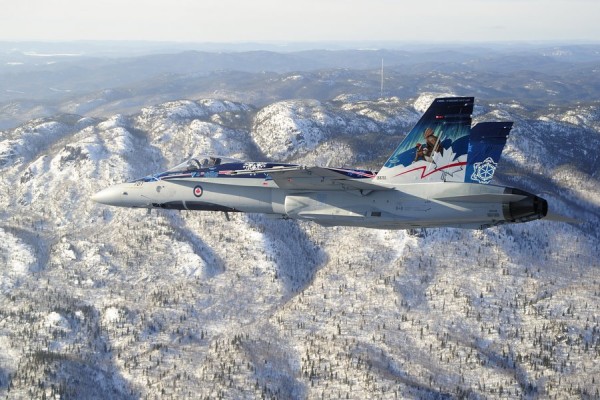How does lowering pilot standards affect SOF forces? If you’ve ever been pinned down by gun fire or an overwhelming enemy force in some dark corner of the earth then you know how important air support is, and how much good piloting is appreciated.
The Royal Canadian Air Force (RCAF) is now looking into bending the minimum medical standards due to a shortage of both fighter and helicopter pilots.
The vision and hearing requirements are being lowered due to a critical shortage of experienced pilots. The RCAF is struggling to retain their more experienced pilots to fly their fighter jets, SAR aircrafts and helicopters. Eye surgery was allowed a few years ago, as with it was the first time since WWII that the RCAF changed their minimum requirements. I honestly think that this was a very good decision, as eye surgery technology has greatly improved in the recent years. But bending them again because of an experienced pilot shortage, I am not really in favor, especially as there are sufficient pilots getting recruited.
“The RCAF has sufficient pilot recruits and pilots undergoing flying training, but not enough experienced pilots that are required to train new pilots, to mentor less experienced RCAF pilots,” said Maj. James Simiana to the National Post last Friday.
The RCAF is presently accepting their retired pilots back in service, alongside British military pilots who were recently laid-off.
Terry Chester, Air Force Association of Canada national president and former RCAF pilot, is right on one point: if there are no available pilots, the RCAF would become redundant.
But is it the best possible solution? I don’t really think so.
I recently wrote an article for SOFREP about the Canadian Armed Forces problems with fat kids. We are already bending the minimum standards for almost all CAF recruits. Are we going to always lower them to fill in our ranks? I hope not.
Once again, the only foreseen solution is to lower the standards, thus increasing chance of accidents or bad maneuvers. I am not talking about how a pilot will gather experience and get better here, but about how a potential recruit won’t have to live to certain standard to start with.
Let’s be honest, flying fighter jets and helicopters is not as easy as firing a rifle downrange. It takes a lot more time to train a pilot, and the RCAF should ensure that the working conditions and the career perspective for their pilots are better than the civilian offers.
With a $75,000 starting salary and amazing benefits, it is normal that the future pilots should be able to pass the minimum requirements without having the RCAF bending them.
Already have an account? Sign In
Two ways to continue to read this article.
Subscribe
$1.99
every 4 weeks
- Unlimited access to all articles
- Support independent journalism
- Ad-free reading experience
Subscribe Now
Recurring Monthly. Cancel Anytime.
How can you bend the minimum requirements when there are sufficient pilots as we speak? The problem is not really the recruiting but the retention.
Decent salaries and amazing benefits are already a huge factor in recruiting new pilots, but how can we keep them in the service after their initial contract?
As of October 2013, a dozen of British pilots, one French pilot and two German helicopter pilots were loaned to the Canadian Forces for a period of up to three years so they could work with RCAF units. Two more German helicopter pilots were due to arrive in October as well.
Canada is allowing 17 allied country pilots to come in and fill gaps left by the Canadian pilots who decided to leave the RCAF to pursue civilian careers.
While it cost millions of dollars to train a pilot, it would be normal that the CAF have a longer initial contract for them. By doing so, the RCAF could keep their pilots for 8-10 years instead of the initial 5 year contract.
Let’s hope the retention will become CAF first priority in the near future so we can keep our experienced pilots and soldiers.










COMMENTS